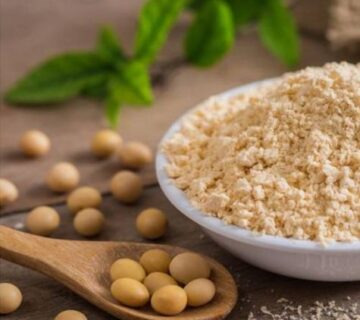In the chocolate and confectionery industry, consistency is non-negotiable. For manufacturers in Saudi Arabia, sourcing a reliable alkalized cocoa powder supplier goes far beyond simple procurement—it is a strategic decision that directly impacts product quality, operational efficiency, and cost management. High-quality cocoa powder ensures that your chocolate products, beverages, and confections meet exacting taste, texture, and color standards batch after batch. Any variability in raw materials can result in production delays, increased waste, and additional costs, making supplier selection a critical factor in your operational success.
From smooth chocolate bars and rich cocoa drinks to premium bakery applications, every production line depends on cocoa powder that performs predictably under industrial conditions. A dependable supplier can also provide consistency in supply, technical support, and guidance on product handling, helping factories minimize downtime and maximize output. In this comprehensive guide, we explore everything a production manager, factory owner, or procurement officer needs to know to secure the right supplier, navigate the complexities of industrial cocoa procurement, optimize operations, and maintain a competitive edge in the ever-growing Saudi market.
Understanding Alkalized Cocoa Powder: Definitions and Fundamentals
Alkalized cocoa powder, often referred to as Dutch-processed cocoa, is treated with an alkaline solution to neutralize its natural acidity. This process results in a cocoa powder with:
- Smoother flavor: Less bitter and more rounded, ideal for high-end chocolate products.
- Darker color: Enhances the visual appeal of confections and bakery products.
- Improved solubility: Easier to integrate into liquid formulations such as chocolate drinks, sauces, and emulsions.
For industrial manufacturers, understanding these characteristics is crucial. The chemical and physical properties of alkalized cocoa powder influence not only taste but also texture, mixability, and shelf-life of the final product. Misalignment between the powder’s specifications and production requirements can lead to inconsistencies, affecting consumer satisfaction and brand reputation.
Why Alkalized Cocoa Powder Matters for Industrial Production
1. Consistency Across Batches
In large-scale production, variations in acidity or particle size can disrupt processing and affect uniformity. Alkalized cocoa powder ensures a stable pH level and predictable interaction with other ingredients, reducing the risk of batch failures.
2. Enhanced Color and Flavor Profile
Premium chocolates and baked goods rely on visually appealing, rich-colored cocoa. Alkalization intensifies the cocoa’s color and smooths out bitterness, making it the preferred choice for high-quality chocolate manufacturers.
3. Cost and Efficiency Considerations
Using a reliable supplier reduces downtime caused by inconsistent raw materials. Predictable quality means fewer rejected batches and optimized raw material usage—directly impacting cost per unit and overall profitability.
Common Pitfalls in Industrial Procurement of Cocoa Powder
While cocoa powder may seem like a straightforward commodity, industrial procurement often encounters hidden challenges:
- Supplier reliability: Frequent stock-outs or inconsistent quality disrupt production schedules.
- Misunderstanding technical specifications: Not all alkalized cocoa powders are identical; particle size, fat content, and alkalization degree vary.
- Logistics and storage issues: Poor packaging or inadequate storage conditions can cause clumping, moisture absorption, or flavor degradation.
By proactively addressing these issues, manufacturers can avoid costly production halts and quality complaints.
Selecting the Right Supplier in Saudi Arabia
When sourcing alkalized cocoa powder locally or regionally, several factors come into play:
1. Product Range and Specification Flexibility
A top-tier supplier offers various grades, fat contents, and particle sizes to suit different production needs. For instance, MT Royal provides a diverse portfolio of alkalized cocoa powders, enabling manufacturers to select the ideal product for chocolate, bakery, or beverage applications.
2. Reliability and Supply Chain Robustness
Timely delivery and consistent stock are vital. Suppliers with well-managed logistics networks and warehousing capabilities prevent production delays and inventory shortages.
3. Quality Assurance and Certification
ISO, HACCP, and food-grade certifications are critical for industrial buyers. They not only ensure compliance with safety standards but also signal the supplier’s commitment to consistent, high-quality products.
4. Brand and Origin Considerations
Premium brands like Latamarko, a Spanish-origin producer, are recognized for their consistent quality, color intensity, and flavor profile. Integrating such brands can elevate the final product and appeal to high-end markets.
Industrial Insights: Practical Tips for Factory Managers
- Understand Your Application
The alkalization degree affects flavor and pH. For chocolate drinks, a higher alkalization may be preferable for smoothness, while for baked goods, a lower degree might preserve acidity for balance. - Test Before Bulk Purchase
Conduct small-scale trials to ensure the selected powder behaves correctly under your processing conditions, from mixing to baking or conching. - Storage and Handling
Maintain a cool, dry environment with proper sealing to prevent clumping and moisture absorption. Use FIFO (first in, first out) systems to rotate stock effectively. - Leverage Supplier Expertise
In our experience supplying manufacturing facilities, collaborating with suppliers for formulation advice and troubleshooting can significantly improve production efficiency.
Comparison Table: Key Alkalized Cocoa Powder Properties
| Property | Typical Range | Importance in Production |
|---|---|---|
| pH Level | 6–8 | Affects flavor, color, and mixing consistency |
| Fat Content | 10–22% | Influences mouthfeel and viscosity |
| Particle Size (μm) | 15–25 | Determines solubility and texture |
| Color (Lovibond) | 35–50 | Impacts final product appearance |
| Solubility Rate | High | Critical for beverages and liquid applications |
Frequently Asked Questions (FAQ)
Q1: Can I substitute natural cocoa with alkalized cocoa powder in recipes?
A: Yes, but expect differences in color, pH, and flavor. Adjust sweeteners or leavening agents accordingly.
Q2: How do I ensure the cocoa powder remains fresh?
A: Store in a dry, cool environment, away from light and strong odors, and follow the supplier’s shelf-life guidance.
Q3: Is there a significant price difference between local and imported brands?
A: Premium imported brands like Latamarko may carry higher upfront costs but can deliver more consistent performance, potentially reducing waste and operational costs over time.
Q4: What quantity ranges are typical for industrial orders in Saudi Arabia?
A: Orders often range from 500 kg to 10 metric tons per shipment, depending on production scale.
Industry-Specific Considerations
Large-scale chocolate and beverage manufacturers must account for:
- Batch-to-batch consistency: Critical for brand trust.
- Integration with automation systems: Particle size and solubility affect mixing and dosing accuracy.
- Regulatory compliance: Aligning with Saudi Food & Drug Authority (SFDA) standards for food safety.
- Cost per kilogram vs. quality trade-off: Balancing price with long-term production reliability.
Partnering with MT Royal: Why It Makes a Difference
At MT Royal, we supply manufacturers across Saudi Arabia with a comprehensive range of alkalized cocoa powders from trusted brands, including European options like Latamarko. By focusing on both quality and competitive pricing, we help production managers minimize downtime, reduce waste, and optimize product consistency.
We’ve observed that facilities incorporating premium cocoa powders experience smoother production, fewer batch rejections, and better final product performance. Our experts work closely with procurement teams to ensure the selected product aligns perfectly with manufacturing requirements.
Conclusion: Making Strategic Procurement Decisions
Choosing the right alkalized cocoa powder supplier is more than a procurement task—it’s a strategic move that affects product quality, production efficiency, and profitability. Manufacturers who invest time in selecting reliable suppliers, testing product specifications, and leveraging supplier expertise position themselves for long-term success.
In the dynamic Saudi Arabian market, aligning with suppliers like MT Royal and integrating premium brands such as Latamarko ensures that your production lines run smoothly, consistently, and at optimal cost-efficiency. The right cocoa powder can transform ordinary batches into premium chocolate experiences and reinforce your brand’s reputation in competitive markets.
latamarko alkalized cocoa powder lm60
cocoa powder for chocolate production-Best price
Food industry raw materials – list of products
Types of Gelatin from Turkish Manufacturer
Alkalized Cocoa Powder Bulk Supplier







No comment